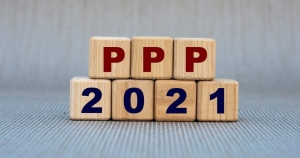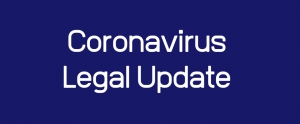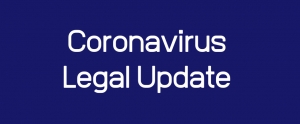2021 Round of PPP Funding: A New Lifeline for Small Businesses is Available Now!
On January 7th, the Treasury Department announced that the Paycheck Protection Program, a unique program that kept many businesses afloat during the initial months of the pandemic, will re-open the week of January 11 for a second round of loans for new borrowers and certain existing PPP borrowers. To promote access to capital, initially only community financial institutions will be able to make First Draw PPP Loans beginning on Monday, January 11, and Second Draw PPP Loans on Wednesday, January 13. The PPP will open to all participating lenders shortly thereafter.The PPP fund provides forgivable loans to businesses, providing they maintain their payroll.
PPP Funding Update – Relaxations on Certification of “Necessity”
May 14, 2020
Yesterday the Small Business Administration (SBA) issued updates to its Frequently Asked Questions (FAQs) guidance on the Paycheck Protection Plan (PPP) Loans, and added Questions/Answers (Q&A) 45 and 46, with the latter Q&A being directly related to the certification issues, and to the corresponding May 14th deadline for the return of funds as a “safe harbor” from civil and criminal penalties relating to the certification of need.
As previously reported, the PPP applications required borrowers to certify that “current economic uncertainty makes this loan request necessary to support the ongoing operations of the Applicant.” Until its issuance of this Q&A, the SBA’s guidance suggested that it would seek to impose civil and criminal penalties relating to the certification as a first resort, if it determined that the loan was unnecessary. In doing so, the SBA induced a sense of fear; and then further induced a sense of urgency by offering the safe harbor from such penalties, allowing borrowers to return the funds on or before May 7th to avoid such penalties. Such deadline was further extended to May 14th.
Paycheck Protection Program (Now is the Time to Apply!)
The Coronavirus Aid, Relief, and Economic Security Act (CARES Act), signed into law on March 27, 2020, provides $349 Billion in SBA 7(a) forgivable loans to businesses and nonprofits with fewer than 500 employees [see endnote 1), including sole proprietors, the self-employed and independent contractors. Known as the Paycheck Protection Program (PPP), the maximum available loan amount is 2.5 times your average total monthly payroll costs, capped at $100,000 per employee on an annualized basis [see endnote 2]. The loan proceeds can be used for any authorized business purpose, but to the extent used to pay payroll costs, healthcare benefits, eligible rent or mortgage interest payments and utility costs over an eight (8) week period from the date the loan is made, the loan can be forgiven (the lender is paid by the SBA). There is no collateral and no personal guarantees required. There is no requirement regarding exhausting other available credit. The SBA pays the lender all loan origination fees and has waived many of its otherwise onerous requirements. To the extent any loan balance is not forgiven, the interest rate will be fixed at the time of the loan somewhere between 0.50% and 4.0% [see endnote 3], amortized over up to 10 years, payable over two (2) years, with all payments deferred for six (6) months. There is no prepayment penalty. The program is only available through June 30, 2020, but funds are limited, so don’t wait. For more detailed information, see below and PPP Information Sheet.























